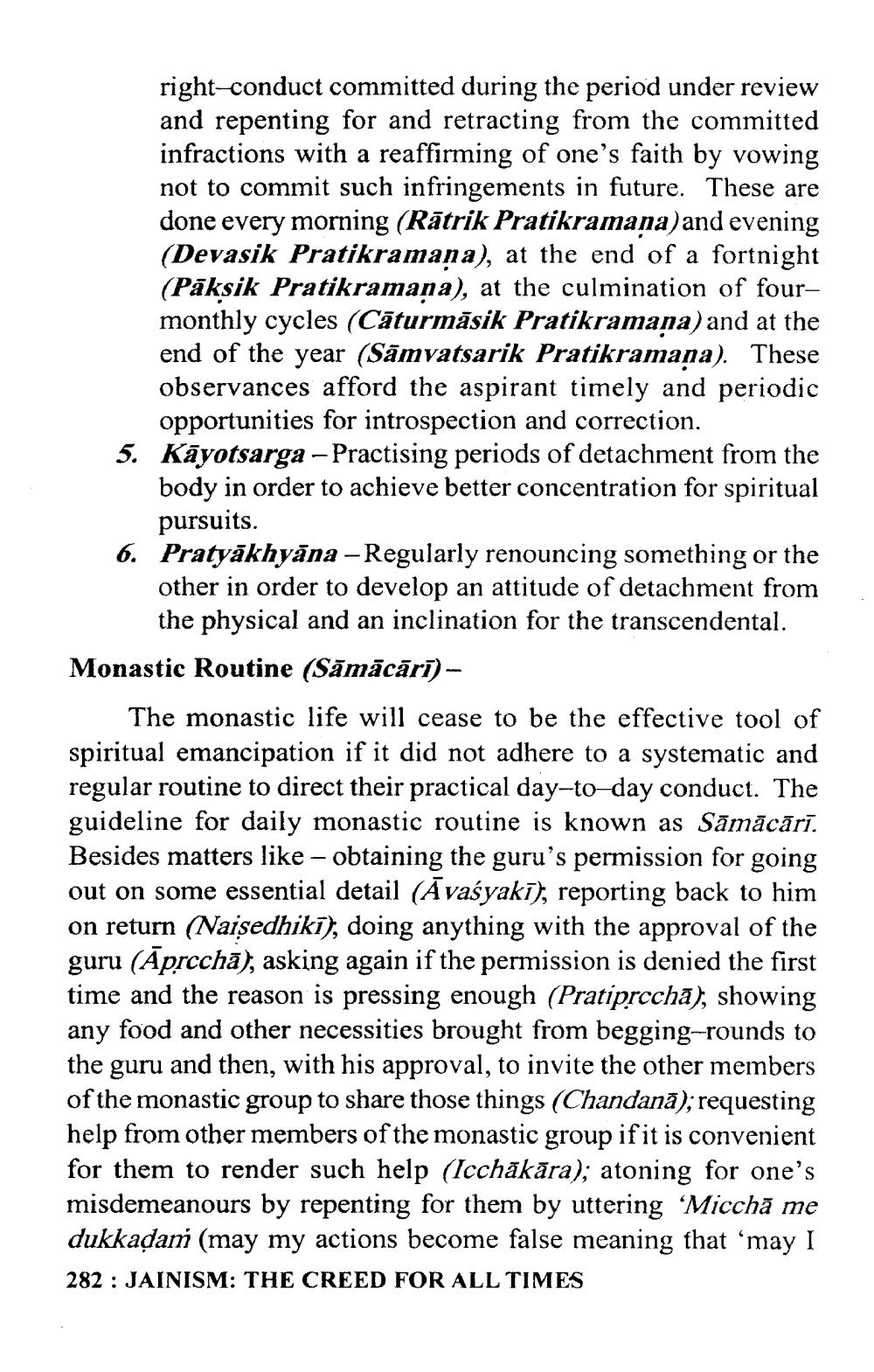________________
right-conduct committed during the period under review and repenting for and retracting from the committed infractions with a reaffirming of one's faith by vowing not to commit such infringements in future. These are done every morning (Rātrik Pratikramana)and evening (Devasik Pratikramana), at the end of a fortnight (Pāksik Pratikramana), at the culmination of fourmonthly cycles (Cāturmāsik Pratikramana) and at the end of the year (Samvatsarik Pratikramana). These observances afford the aspirant timely and periodic
opportunities for introspection and correction. 5. Kāyotsarga - Practising periods of detachment from the
body in order to achieve better concentration for spiritual
pursuits. 6. Pratyākhyāna - Regularly renouncing something or the
other in order to develop an attitude of detachment from
the physical and an inclination for the transcendental. Monastic Routine (Sāmācārī) -
The monastic life will cease to be the effective tool of spiritual emancipation if it did not adhere to a systematic and regular routine to direct their practical day-to-day conduct. The guideline for daily monastic routine is known as Sāmācārī. Besides matters like - obtaining the guru's permission for going out on some essential detail (Āvasyakī), reporting back to him on return (Naisedhikī), doing anything with the approval of the guru (Aprcchā), asking again if the permission is denied the first time and the reason is pressing enough (Pratiprcchā), showing any food and other necessities brought from begging-rounds to the guru and then, with his approval, to invite the other members of the monastic group to share those things (Chandanā); requesting help from other members of the monastic group if it is convenient for them to render such help (Icchākāra); atoning for one's misdemeanours by repenting for them by uttering Micchā me dukkadami (may my actions become false meaning that 'may I 282 : JAINISM: THE CREED FOR ALL TIMES




